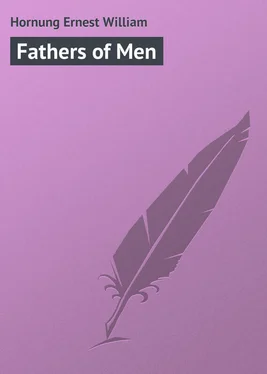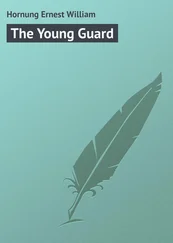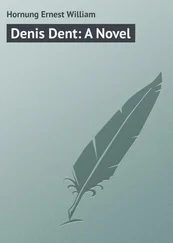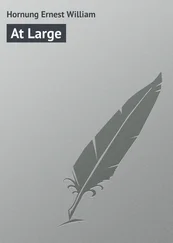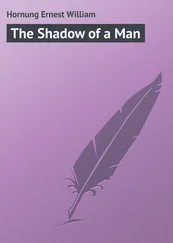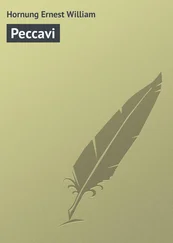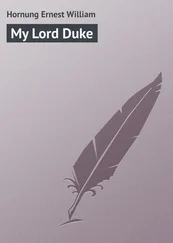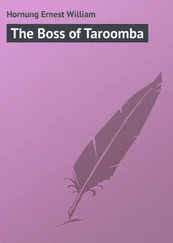Ernest Hornung - Fathers of Men
Здесь есть возможность читать онлайн «Ernest Hornung - Fathers of Men» — ознакомительный отрывок электронной книги совершенно бесплатно, а после прочтения отрывка купить полную версию. В некоторых случаях можно слушать аудио, скачать через торрент в формате fb2 и присутствует краткое содержание. Жанр: foreign_prose, на английском языке. Описание произведения, (предисловие) а так же отзывы посетителей доступны на портале библиотеки ЛибКат.
- Название:Fathers of Men
- Автор:
- Жанр:
- Год:неизвестен
- ISBN:нет данных
- Рейтинг книги:5 / 5. Голосов: 1
-
Избранное:Добавить в избранное
- Отзывы:
-
Ваша оценка:
- 100
- 1
- 2
- 3
- 4
- 5
Fathers of Men: краткое содержание, описание и аннотация
Предлагаем к чтению аннотацию, описание, краткое содержание или предисловие (зависит от того, что написал сам автор книги «Fathers of Men»). Если вы не нашли необходимую информацию о книге — напишите в комментариях, мы постараемся отыскать её.
Fathers of Men — читать онлайн ознакомительный отрывок
Ниже представлен текст книги, разбитый по страницам. Система сохранения места последней прочитанной страницы, позволяет с удобством читать онлайн бесплатно книгу «Fathers of Men», без необходимости каждый раз заново искать на чём Вы остановились. Поставьте закладку, и сможете в любой момент перейти на страницу, на которой закончили чтение.
Интервал:
Закладка:
At the foot of the lead-lined stairs, worn bright as silver at the edges, there was a short tiled passage with a green baize door at one end and what was evidently the boys’ hall at the other. The baize door communicated with the master’s side of the house, for the new boys had come through it on their way up to dormitory. The hall was a good size, with one very long table under the windows and two shorter ones on either side of the fireplace. On the walls hung portraits of the great composers, which Jan afterwards found to be house prizes in part-singing competitions discontinued before his time; at the moment, however, he took no kind of interest in them, and but very little in the two challenge cups under the clock. What did attract him was the line of open windows, looking like solid blocks of sunlight and fresh air. On the sill of one a figure in print was busy with her wash-leather, and she accosted Jan cheerily.
“You are down early, sir!”
“I always am,” remarked Jan, looking for a door into the open air.
“You’re not like most of the gentlemen, then,” the maid returned, in her cheerful Cockney voice. “They leaves it to the last moment, and then they 'as to fly. You should 'ear ’em come down them stairs!”
“Is there no way out?” inquired Jan.
“You mean into the quad?”
“That’s the quad, is it? Then I do.”
“Well, there’s the door, just outside this door; but Morgan, 'e keeps the key o’ that, and I don’t think 'e’s come yet.”
“Then I’m going through that window,” announced the new boy, calmly; and carried out his intention without a moment’s hesitation.
Had his object been to run away on his very first morning, before his house-master was astir, as the maid seemed to fear by the way she leant out of her window to watch him, the next step would have taxed all Jan’s resources.
Heriot’s quad was a gravel plot very distinctively enclosed, on the left by the walls of buildings otherwise unconnected with the house, on the right by the boys’ studies. At the further extremity were twin gables over gothic arches which left the two interiors underneath open at one end to all the elements; never in his life had Jan beheld such structures; but he had picked up enough from his tutor to guess that they were fives-courts, and he went up to have a look into them. To the right of the fives-courts was an alley ending at a formidable spiked gate which was yet the only obvious way of escape, had Jan been minded to make his. But nothing was further from his thoughts; indeed, there was a certain dull gleam in his eyes, and a sallow flush upon his face, which had not been there the previous evening. At all events he looked wider awake.
The studies interested him most. There was a double row of little lattice windows, piercing a very wall of ivy, like port-holes in a vessel’s side. Not only were the little windows deep-set in ivy, but each had its little window-box, and in some of these still drooped the withered remnant of a brave display. Jan was not interested in flowers, or for that matter in anything that made for the mere beauty of life; but he peered with interest into one or two of the ground-floor studies. There was little to be seen beyond his own reflection broken to bits in the diamond panes. Between him and the windows was a border of shrubs, behind iron palings bent by the bodies and feet of generations, and painted green like the garden seats under the alien walls opposite. On the whole, and in the misty sunlight of the fine September morning, Jan liked Heriot’s quad.
“You’re up early, sir!”
It was not the maid this time, but a bearded man-servant whom the boy had seen the previous night. Jan made the same reply as before, and no sort of secret of the way in which he had got out into the quad. He added that he should like to have a look at the studies; and Morgan, with a stare and a smile quite lost on Jan, showed him round.
They were absurdly, deliciously, inconceivably tiny, the studies at Heriot’s; each was considerably smaller than a dormitory “tish,” and the saddle-room of Jan’s old days would have made three or four of them. But they were undeniably cosy and attractive, as compact as a captain’s cabin, as private as friar’s cell, and far more comfortable than either. Or so they might well have seemed to the normal boy about to possess a study of his own, with a table and two chairs, a square of carpet as big as a bath-sheet, a book-shelf and pictures, and photographs and ornaments to taste, fretwork and plush to heart’s content, a flower-box for the summer term, hot-water pipes for the other two, and above all a door of his own to shut at will against the world! But Jan Rutter had not the instincts of a normal schoolboy, nor the temperament favourable to their rapid growth. He had been brought up too uncomfortably to know the value of comfort, and too much in the open air to appreciate the merits of indoor sanctuary. Artistic impulse he had none; and the rudimentary signs of that form of grace, to be seen in nearly all the studies he was shown, left him thoroughly unimpressed.
“Is it true,” he asked, “that every boy in the school has one of these holes?”
“Quite true,” replied Morgan, staring. “You didn’t say 'holes,’ sir?”
“I did,” declared Jan, enjoying his accidental hit.
“You’d better not let Mr. Heriot hear you, sir, or any of the gentlemen either!”
“I don’t care who hears me,” retorted Jan, boastfully; but it must not be forgotten that he had come to school against his will, and that this was his first opportunity of airing a not unnatural antagonism.
“You wait till you’ve got one of your own,” said the well-meaning man, “with a nice new carpet and table-cloth, and your own family portraits and sportin’ picters!”
“At any rate I should know a horse from a cow,” returned Jan, examining something in the nature of a sporting print, “and not hang up rot like that!”
“You let Mr. Shockley hear you!” cried Morgan, with a laugh. “You’ll catch it!”
“I’ve no doubt I shall do that,” said Jan, grimly. He followed Morgan into an empty study, and asked if it was likely to be his.
“Not unless you take a pretty high place in the school. It’s only the top dozen in the house that get these front studies upstairs. You can make up your mind to one at the back, and be glad if it’s not downstairs, where everybody can see in and throw in stones.”
Jan felt he had not made a friend of Morgan; and yet in his heart he was more favourably impressed with what he had seen than his peculiar temperament permitted him to show. Little as their adventitious attractions might appeal to him, there was something attractive to Jan about this system of separate studies. It appealed, and not without design, to that spirit of independence which happened to be one of his stronger points. Moreover he could conceive a very happy intimacy between two real friends in one of these little dens; and altogether he brought a brighter face to the breakfast-table than he had shown for an instant overnight. Heriot glanced at it with an interested twinkle, as though he had been at the explorer’s elbow all the morning; but whatever he might have known, he betrayed his knowledge neither by word nor sign.
After breakfast the two boys sallied forth with orders signed by Heriot for a school cap apiece; and saw the long old-fashioned country street for the first time in broad daylight. It gave the impression of a street with nothing behind it on either side, the chance remnant of a vanished town. Nothing could have been more solid than the fronts of the drab stone houses, and nothing more startling than the glimpses of vivid meadowland like a black-cloth close behind. The caps were procured from the cricket professional, a maker of history whose fame provided Carpenter with a congenial topic on the way, but sat sadly on the failing giant who was there to serve them in the little shop. The caps were black but not comely, as Carpenter more than once remarked; they were a cross between a cricket-cap and that of a naval officer, with the school badge in red above the peak. Jan chose the biggest he could find, and crammed it over his skull as though he was going out to exercise a horse.
Читать дальшеИнтервал:
Закладка:
Похожие книги на «Fathers of Men»
Представляем Вашему вниманию похожие книги на «Fathers of Men» списком для выбора. Мы отобрали схожую по названию и смыслу литературу в надежде предоставить читателям больше вариантов отыскать новые, интересные, ещё непрочитанные произведения.
Обсуждение, отзывы о книге «Fathers of Men» и просто собственные мнения читателей. Оставьте ваши комментарии, напишите, что Вы думаете о произведении, его смысле или главных героях. Укажите что конкретно понравилось, а что нет, и почему Вы так считаете.
